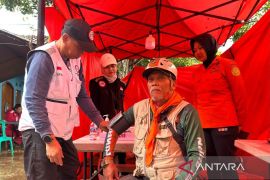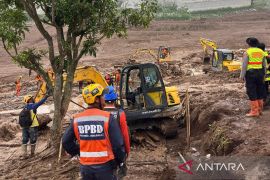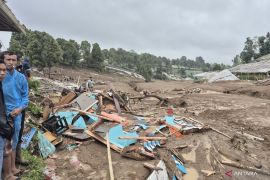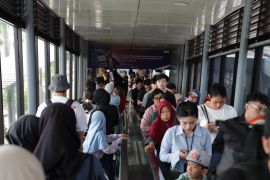"If we observe the people's mobility in Jakarta with the surrounding regions, it is very high," she noted at the 'Strategy to Deal with the Third Wave of the Pandemic' webinar on Friday.
According to Dewi, while local officials are diligently conducting mitigation measures such as case tracing and expanding COVID-19 vaccination coverage, intercity mobility is unavoidable due to several factors.
"As a result, West Java will always be second after Jakarta," she noted.
Despite this, mobility in all West Java cities, such as Bandung, is not equal, she said.
In Bandung, more than 60 percent of the population is from outside the city, which has resulted in high levels of mobility, she explained. Thus, the case count within the city has continued to increase, she said.
When it comes to cities in agglomeration, a surge in cases occurs at a very fast rate, she added.
COVID-19 Task Force's Health Support Sub-division Head Alexander K. Ginting concurred with Dewi, saying that West Java has emerged as one of the provinces with the highest positivity rates.
Related news: East Java governor asks elderly to cut mobility amid COVID spike
According to data from the task force, as of February 16, 2022, West Java has reported among the highest positivity rates along with Banten, Central Java, North Sulawesi, and Jakarta.
Moreover, regions with the highest positive cases and deaths are still around Java and Bali such as East Java, West Java, Central Java, Jakarta, and Bali, he added.
Provinces with the highest figures have dense populations and adequate infrastructures, he said.
Related news: Follow health protocols amid increase in public mobility: spokesperson
Translator: Hreeloita Shanti, Fadhli Ruhma
Editor: Rahmad Nasution
Copyright © ANTARA 2022












